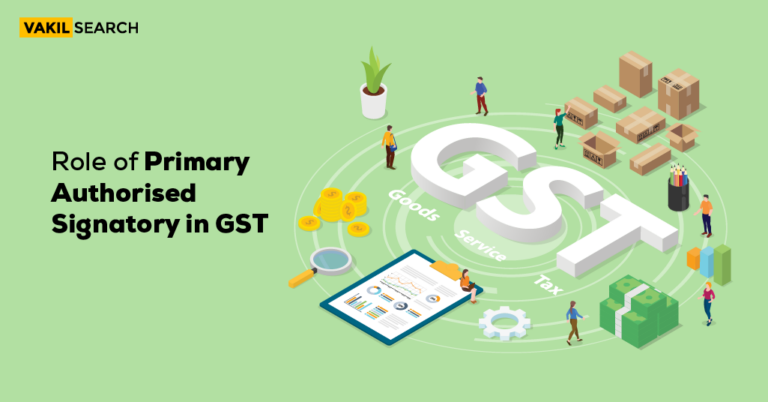By levying an indirect tax on crypto asset trade, the government is preparing to legally put crypto assets under the goods and services tax (GST) structure. In an exclusive interview with Outlook Business, revenue secretary Tarun Bajaj said that the GST Council will soon take up the subject of levying the indirect tax on crypto assets.
In India, the taxation of cryptocurrency has been a matter of debate for several years. Recently, the issue of GST on crypto trading has gained prominence. The Goods and Services Tax (GST) is a value-added tax levied on the sale of goods and services in India. This article will discuss the implications of GST on crypto trading in India.
Government ministries and the Reserve Bank of India (RBI) are hurrying to draught regulations to regulate the crypto industry, the details of which have begun to emerge following finance minister Nirmala Sitharaman’s announcement in the Union budget regarding taxing crypto assets. For quite some time, it appears that government departments have been laying the groundwork for taxing the sector.
‘I intend to provide that any revenue from the transfer of any virtual digital asset would be taxed at a rate of 30%’, Sitharaman stated in her budget address. Government has excluded any deduction in respect of expenditure or allowance shall be allowed for computing such income, except for the cost of purchase. Aside from this plan, she stated that every payment made in relation to the transfer of virtual digital assets will be subject to a 1% tax deducted at source. It has also been recommended that gifting of virtual digital assets be taxed in the recipient’s hands.
According to Bajaj, if an investor engages an adviser to help them make investment decisions and pays the adviser a fee, the GST is already applicable. However, in terms of other parts of GST taxation, what has happened is that this is also new. We’re also getting a better understanding of how the transaction works. Platform-to-platform [trade] is one option, and exchanges are another. The market layers shall be able to provide comprehensive clarification on the GST Registration Process front in the next three to four months.
‘At the moment, any services given as part of these transactions are subject to GST, much like brokerage services for stocks’. The first step for the firms is to see how they classify crypto-currencies in our rules, and then figure out about taxation.
What Is Cryptocurrency Trading?
Cryptocurrency trading involves buying and selling digital currencies such as Bitcoin, Ethereum, and others. These currencies are decentralized and operate on a blockchain network, which means that they are not regulated by a central authority such as a government or a financial institution.
Current Status of GST on Crypto Trading
The Indian government has not yet clarified its stance on the applicability of GST on crypto trading. However, some experts believe that cryptocurrencies may be classified as goods or services and, therefore, may be subject to GST.
Arguments in Favor of Gst on Crypto Trading
Proponents of GST on cryptocurrency trading argue that the tax is necessary to bring digital currencies into the mainstream and to provide a level playing field for all market participants. They also argue that GST would enable the government to collect taxes on cryptocurrency transactions and prevent tax evasion.
Arguments Against Gst on Crypto Trading
Opponents of GST on cryptocurrency trading argue that digital currencies are not goods or services in the traditional sense and, therefore, should not be subject to GST. They also argue that the lack of clarity on the taxation of cryptocurrencies may lead to confusion and discourage investment in the sector.
The Tax Specialists are Suddenly Caught in a Bind
‘There is no clarity on the GST rate that applies because the question is whether any services are being supplied in the first place. Second, any bitcoin transactions between such taxpayers and the corporations paying must be cross-verified to ensure that this is not a conduit for anything that is prohibited under Indian law’, said Gaurav Mehta, the founder of Catax, a cryptocurrency tax advisory service.
The GST law is the initial step in imposing the GST on any goods. The legal committee submits the proposal to the GST Council, which, after deliberation, decides on the tax rate. Because it will go through so many stages, it is expected that there will be adequate clarity. The CBIC is now working on the idea. Perhaps this will be clarified in the GST Council: https://reg.gst.gov.in/registration/ sessions following the next one. But it’s a lengthy process, and the goal is to collect the tax until everything is resolved.
Before registering for GST, determine how much GST has to be paid using our GST Calculator.Conclusion
While the government appears to be set on bringing the crypto sector under direct and indirect taxation, the Reserve Bank of India is concerned about the macroeconomic implications. Following a meeting of the Monetary Policy Committee on February 10, RBI governor Shaktikanta Das issued a strong warning against investing in cryptocurrencies, claiming that they lacked the underlying value ‘of even a tulip’—a reference to a speculative bubble that engulfed the Netherlands in the 17th century. ‘The private cryptocurrency market poses a significant danger to macroeconomic and financial stability. Investors should remember that they are doing so at their own risk’.
Also, Read;










